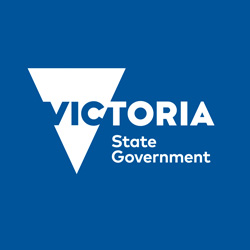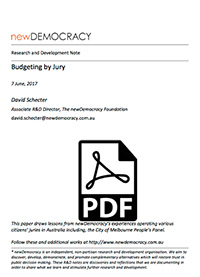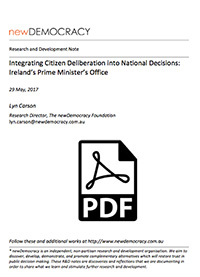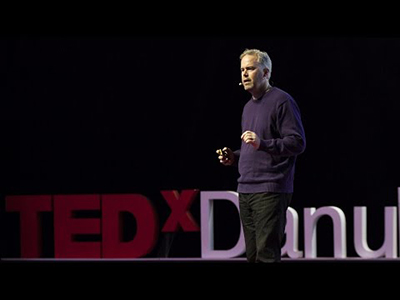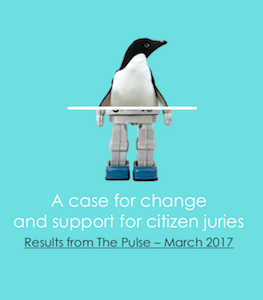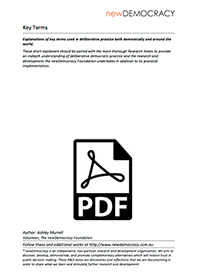Geelong will have the council structure it wants with the passage of City of Greater Geelong Amendment Bill 2017. The Legislative Council passed the Bill last night, bringing about the new structure for the City of Greater Geelong following the Council’s dismissal in April 2016. In an Australian first, the Geelong Citizen’s Jury process put...Continue reading
“There’s no foreseeable opportunity for this”: Jay declares nuke dump “dead”
Premier Jay Weatherill has officially walked away from one of the major policy hallmarks of his term in Government, pronouncing the nuclear waste dump “dead” and vowing he will not revisit it if he wins another term in office. The position appears a significant rhetorical shift from his stance last November, when he pledged to...Continue reading
Budgeting By Jury
David Schecter – Associate R&D Director, The newDemocracy Foundation What is the question? Budgeting is hard. Governments are faced with expanding demands for services and needs for infrastructure, combined with insufficient ability to raise revenue. Elected representatives face intense and conflicting pressures from interest groups. Public opinion, as evidenced through the media, is likely to be...Continue reading
newDemocracy Foundation R&D: May 2017 Research Newsletter
Welcome to our new research newsletter. The newDemocracy Foundation takes research seriously. We have funded independent research projects for many years (and reports from these projects can be found on our website), but have recently decided to take an even more proactive and direct approach. Our focus will now be to commission specific research, rather than...Continue reading
Integrating Citizen Deliberation into National Decisions: Ireland’s Prime Minister’s Office (Updated)
Lyn Carson – Research Director, The newDemocracy Foundation What is the question? How could a prime minister’s office build trust in order to make the most contentious national decisions, and does the recent experience in Ireland help to answer this? Why answer this question? There is increasing world-wide distrust in politicians and elections. Democracy was borne...Continue reading
Brett Hennig TEDx Talk
In his talk Brett Hennig presents a compelling, coherent case of fixing broken democracy by replacing elected politicans with ordinary people. Sounds crazy? You’ll be suprised to hear, it actually works.Dr Brett Hennig (taxi driver, software engineer, social justice activist, mathematics tutor, PhD in astrophysics) is a director and co-founder of the Sortition Foundation whose...Continue reading
Citizens’ Assembly abortion voting more nuanced than it first appeared
Justice Mary Laffoy and the Citizens’ Assembly have done the State some service in terms of determining future approaches in law on abortion – and their deliberations must be listened to and acted upon. The Assembly voted to repeal Article 40.3.3 and proposed that a new constitutional provision be inserted granting the Oireachtas exclusive power...
Coalition frantically selling the budget but voters stay switched off
There’s an asterisk on a lot of political analysis, a rider at the end of deliberations about the impact of this or that event: “So long as the voters haven’t stopped listening.” When Malcolm Turnbull pulled off a budget policy flip that would have made Nadia Comăneci proud, we all pondered whether he had outmanoeuvred...Continue reading
The Pulse: Australian Perspectives on Trust, The Political System and Citizens Juries
Pollinate Research, April 2017 In March 2017, Pollinate Research conducted a quantitative study that takes the ‘pulse’ of Australians on a range of issues and concerns. Pollinate is an independently owned and run research agency based in Sydney, and has conducted similar work on a regular basis since 2007. Each round of research samples 1,000 respondents nationwide, and...Continue reading
Planning Cells
What is the planning cell method? Planning cells are a form of deliberative democracy used as a decision making tool to develop a set of solutions to a problem delegated by a government body or organisation. The method encourages its participants to come to a neutral, fact-based conclusion that takes into consideration the views of...Continue reading

